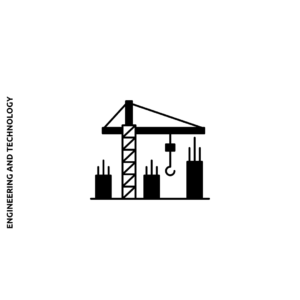Description
A Master of Science in Information Technology (M.Sc. in IT) is a graduate degree program that provides advanced knowledge and skills in various aspects of information technology, including system design, data management, cybersecurity, and software development. This degree is designed for individuals looking to enhance their expertise in IT and prepare for leadership roles in a rapidly evolving technological landscape.
Curriculum Overview
The curriculum for an M.Sc. in Information Technology typically includes a mix of core courses, electives, and a research component or capstone project. Here are some common subjects and topics that may be covered:
Advanced Software Development:
In-depth study of software development methodologies, including Agile and DevOps, along with advanced programming techniques.
Database Management and Analytics:
Advanced concepts in database design, data warehousing, big data technologies, and data analytics methods.
Network Security:
Examination of cybersecurity principles, threat assessment, risk management, and the implementation of security protocols to protect information systems.
System Design and Architecture:
Principles of designing and managing IT infrastructure and software systems, focusing on scalability, reliability, and efficiency.
Cloud Computing:
Exploration of cloud service models (IaaS, PaaS, SaaS), cloud architecture, and the deployment of applications in cloud environments.
Artificial Intelligence and Machine Learning:
Introduction and application of AI and machine learning algorithms, focusing on data mining, predictive analytics, and intelligent systems.
Information Systems Management:
Strategies for managing IT resources, aligning IT with business goals, and the role of IT in organizational change.
Human-Computer Interaction:
Study of user experience (UX) design principles, usability testing, and optimizing the interaction between users and computer systems.
Project Management in IT:
Principles and techniques for successfully managing IT projects, including risk management, budgeting, and team dynamics.
Research Methods in IT:
Introduction to research methodologies relevant to information technology, preparing students for thesis work or independent research projects.
Electives and Specializations:
Opportunities to specialize in areas such as cybersecurity, data science, mobile technologies, or emerging technologies.
Capstone Project or Thesis:
A practical project or research thesis that allows students to apply their learning to real-world IT challenges, often involving collaboration with industry partners.
Career Opportunities
Graduates with an M.Sc. in Information Technology can pursue various advanced career paths across different sectors. Some potential job roles include:
IT Manager/Director: Overseeing an organization?s IT strategy, operations, and team management.
Software Architect: Designing high-level software architecture and frameworks for applications and systems.
Data Scientist/Analyst: Analyzing complex data sets to provide actionable insights, utilizing statistical tools and machine learning techniques.
Network Architect: Designing and implementing computer networks, ensuring robust security and efficient performance.
Cybersecurity Analyst/Consultant: Protecting an organization?s data and systems from cyber threats, developing security policies, and conducting risk assessments.
Systems Analyst: Evaluating and optimizing IT systems to enhance organizational efficiency and effectiveness.
Cloud Solutions Architect: Designing and implementing cloud-based solutions tailored to an organization?s needs.
Business Intelligence Analyst: Utilizing data analysis to support business decisions, often focusing on reporting and data visualization.
IT Consultant: Advising organizations on technology solutions, IT strategy, and process improvements.
User Experience (UX) Designer: Focusing on optimizing user interfaces and enhancing the overall user experience of software products.
Further Education
Graduates may also choose to continue their education by pursuing a Ph.D. in Information Technology, Computer Science, or related fields, especially if they are interested in research or academic careers. Additionally, certifications in specific areas such as cybersecurity (CISSP, CEH), project management (PMP, Agile), or cloud technologies (AWS, Azure) can further enhance career prospects.
If you have more specific questions about the curriculum, career opportunities, or other aspects of a Master of Science in Information Technology, feel free to ask!









